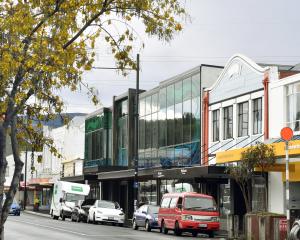
Dunedin, Queenstown and Invercargill airports, as the Southern Airport Alliance, have made a joint bid to host "next generation" decarbonised Air New Zealand flights.
The Otago Regional Council has backed the bid, saying at present aviation accounts for 10% of the Otago region’s transport emissions.
Queenstown Airport sustainability and corporate affairs general manager Sara Irvine issued a joint statement on the airport alliance’s behalf this week.
"Air New Zealand’s mission next gen flight project is exciting and presents a great opportunity for our airports to play a leadership role in the transition of domestic air travel in Aotearoa New Zealand," the statement said.
"The decarbonisation challenge is significant, and airports have a vital role to play planning for and providing the infrastructure required to enable the transition."
The airports were geographically close to each other, and the lower South Island was the "heartland" of New Zealand’s renewable energy sector, it said.
Air New Zealand has committed to reaching net zero carbon emissions by 2050 and last month called for expressions of interest from airports to host a low carbon "commercial demonstrator".
Hydrogen, battery and hybrid technologies were still under development by aircraft manufacturers and the type of aircraft to be used had yet to be determined.
But the aircraft to be used would be announced early next year, the airline said.
The first flights would be cargo only, but the project was designed to build public confidence in the technology and was a step towards decarbonised flights on the airline’s domestic network from 2030.
Chief sustainability officer Kiri Hannifin said before the next generation demonstration flights began, over the next three years the company would be focused on supporting the building, testing, and certifying of aircraft and associated infrastructure.
"The selected airports will be leaders in supporting the implementation of this new technology and will be the conduit of information between airports across the motu as we drive the change required in advance of our larger fleet replacement needs from 2030."
In a letter of support, Otago Regional Council chairwoman Cr Gretchen Robertson said the council’s most recent regional greenhouse gas inventory showed emissions from aviation in the region were 139,308tonnes of carbon dioxide equivalent, or 10% of all transport emissions.
The council strongly supported the bid, she said.












